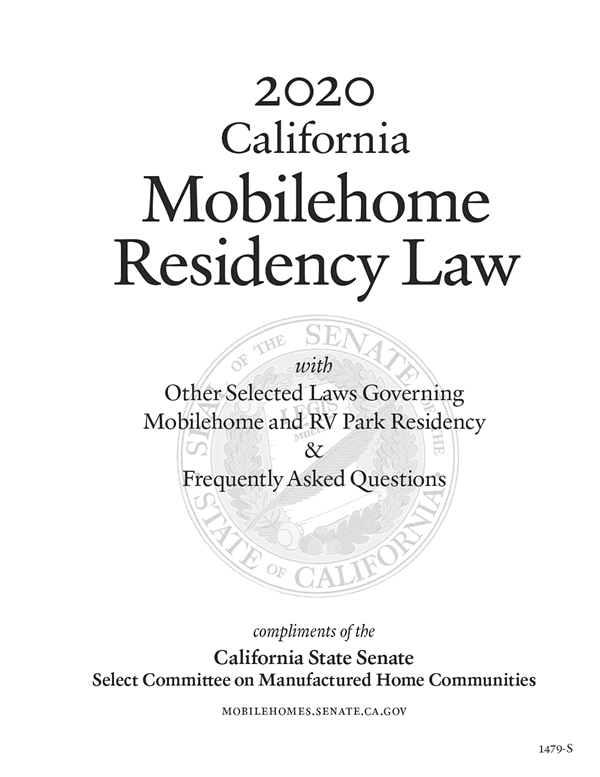Mobile Home Owner News – Feb 2020
Resident curated news and important information regarding mobile home owners and residents in mobile home parks throughout the State of California.
Click/tap the story headlines to open a link to the full original story. Story headlines with are inline news stories.
Clicking or tapping links with a caret (kar-it, carrot) will expand/show additional content and change to to collapse/hide content. Content that is collapsed/hidden will not print.
Fri, Feb 21, 2020 – Introduced by Assembly Member Quirk-Silva, Assembly Bill 2895, an act to amend Section 1947.12 of, and to add Section 798.30.5 to, the Civil Code, relating to mobilehomes.
Existing law, the Mobilehome Residency Law, prescribes various terms and conditions of tenancies in mobilehome parks. Existing law defines “tenancy” for these purposes as the right of a homeowner to use a site within a mobilehome park on which to locate, maintain, and occupy a mobilehome for human habitation, including the use of the services and facilities of the park.
This bill would prohibit the management of a mobilehome park from increasing the gross rental rate for a tenancy more than 5% plus the percentage change in the cost of living, as defined, or 10%, whichever is lower, of the lowest gross rental rate charged for the immediately preceding 12 months, as specified. The bill would prohibit management of a mobilehome park from increasing the gross rental rate for a tenancy in more than 2 increments over a 12-month period, after the tenant maintains a tenancy over a 12-month period. The bill would void any waiver of the rights provided under these provisions.
Existing law, the Tenant Protection Act of 2019, prohibits, with certain exceptions, an owner of residential real property from increasing the gross rental rate for a dwelling or unit more than 5% plus the percentage change in the cost of living, as defined, or 10%, whichever is lower, of the lowest gross rental rate charged for the immediately preceding 12 months, subject to specified conditions. Existing law exempts an owner or operator of a mobilehome park and an owner of a mobilehome or their agent from these provisions.
This bill would extend the above provisions to any person having the right to offer residential real property for rent, including an owner or operator of any dwelling or unit in a mobilehome park.
AB-2895 Mobilehome Parks: Rent Caps (2019-2020)
Sponsor: Assembly Member Quirk-Silva
MHPHOA Bill Commentary
Note: This bill is BAD for California mobile home owners. It appears this bill was introduced due to the Rancho La Paz space rent increases after the sale of the mobile home park in Feb 2019 to a John Saunders company. If this were in effect as of this date, space rents could be raised 8.1% (5.0% + 3.1% CPI) which is quite a bit more than most long-term lease agreements which are usually in the 4.0-6.0% range.
California Space Rent Stabilization Ordinances are typically much less than the proposed 5.0% plus CPI. Based on existing California SRSOs, this Assembly Bill would have had more bite had it been based on 75% CPI with a 5.0% Cap.
Will this Assembly Bill protect California mobile home owners from significant space rent increases based on the Rancho La Paz scenario? Based on our knowledge of the laws pertaining to California mobile home parks – NO! Instead of a space rent increase, park owners may now attempt to pass-through tax reassessments at time of sale. There may be a separate line item on your rent statement showing the amount of the pass-through (usually amortized) in addition to your monthly space rent.
Question:
Why do residents have to pay taxes on their mobilehomes in addition to paying the park owner a fee for property taxes?Answer:
Mobilehome owners, who are park residents, pay for the park’s property taxes either through their rent or sometimes through separate pass-through fees for property taxes, or property tax increases, on the park property.
California MRL FAQ #10
Thu, Feb 20, 2020 – Introduced by Assembly Member Low, Assembly Bill 2690, an act to add Section 798.46 to, and repeal Section 798.45 of, the Civil Code, relating to mobilehomes.
Existing law, the Mobilehome Residency Law, prescribes various terms and conditions of tenancies in mobilehome parks. Existing law exempts new construction, defined as spaces initially held out for rent after January 1, 1990, from any ordinance, rule, regulation, or initiative measure adopted by a city or county, which establishes a maximum amount that a landlord may charge a tenant for rent.
This bill would repeal the exemption regarding new construction and ordinances, rules, regulations, and initiative measures. This bill would require each city or county, by January 1, 2023, to adopt a mobilehome park rent stabilization ordinance, as defined, or to submit a justification in writing to the Department of Housing and Community Development on a form developed by the department as to why the city or county will not adopt a mobilehome park rent stabilization ordinance. By requiring cities and counties to adopt a rent stabilization ordinance or justify not doing so, the bill would impose a state-mandated local program.
This bill would require each city or county that adopts a mobilehome park rent stabilization ordinance pursuant to these provisions to submit the ordinance to the department within 30 days of adoption. The bill would require the department to post each mobilehome park rent stabilization ordinance submitted pursuant to these provisions on its internet website by January 1, 2024.
AB-2690 Mobilehome Parks: Local Ordinances: Rent Stabilization Ordinances (2019-2020)
Sponsor: Assembly Member Low
Thu, Feb 20, 2020 – Introduced by Assembly Member Mark Stone, Assembly Bill 2782, an act to amend Section 798.56 of the Civil Code, and to amend Sections 65863.7 and 66427.4 of the Government Code, relating to land use.
Existing law, the Mobilehome Residency Law, requires the management of a mobilehome park to comply with notice and specified other requirements in order to terminate a tenancy in a mobilehome park due to a change of use of the mobilehome park, including giving homeowners at least 15 days’ written notice that the management will be appearing before a local governmental board, commission, or body to request permits for the change of use.
This bill would instead require the management to give homeowners at least 60 days’ written notice that the management will be appearing before a local governmental board, commission, or body to obtain local approval for the intended change of use of the mobilehome park.
AB-2782 Mobilehome Parks: Change of Use (2019-2020)
Sponsors: Golden State Manufactured-Home Owners League (GSMOL), California Rural Legal Assistance Foundation (CRLAF)
Thu, Feb 20, 2020 – Introduced by Assembly Member Limón, Assembly Bill 2845, an act to amend Section 798.85 of the Civil Code, relating to civil law.
Existing law provides that in any action arising out of the Mobilehome Residency Law, the prevailing party shall be entitled to reasonable attorney’s fees and costs, and defines a prevailing party for these purposes.
This bill would instead provide that a resident who is the prevailing party shall be entitled to reasonable attorney’s fees and costs and, if management is the prevailing party, would require a court to award reasonable attorney’s fees and costs only if the resident’s action or defense is frivolous. The bill would delete the provision defining a prevailing party.
AB-2845 Mobilehome Residency Law: Actions (2019-2020)
Sponsor: Western Center on Law and Poverty (WCLP)
HUD FAQs About Manufactured Housing and Standards
Thu, Feb 20, 2020 – Do you own a mobile home or a manufactured home? If it was built before June 15, 1976 and it’s 10 feet wide or more (10-Wide), it’s a mobile home. If it’s less than 10 feet in width (8-Wide) and can be towed by a car or small truck, it’s typically a trailer.
Question: What is a manufactured home?
Answer: A manufactured home (formerly known as a mobile home) is built to the Manufactured Home Construction and Safety Standards (HUD Code) and displays a red certification label on the exterior of each transportable section. Manufactured homes are built in the controlled environment of a manufacturing plant and are transported in one or more sections on a permanent chassis.
Question: My home was built before June 15, 1976. I've made some modifications to my home and believe it meets the HUD Standards. Can someone come inspect my home to make sure it's in compliance with the Standards?
Answer: HUD does not inspect homes. Homes built prior to June 15, 1976, even with modifications, do not meet the HUD standards and cannot be accepted as compliant with the HUD Code. As the homeowner, you may find a licensed engineer willing to inspect your home for compliance with your state's housing code. FHA does not insure mortgages on manufactured homes built prior to June 15, 1976. Most other mortgage insurance firms follow FHA's policy.
Question: Will HUD issue certification labels (HUD tags) if my home was built before 1976?
Answer: No. The Department will not issue tags for a manufactured (mobile) home constructed prior to the enforcement of the Manufactured Home Construction and Safety Standards, effective June 15, 1976.
Trailer (8-Wide) vs. Mobile Home (10-Wide)
Note: In 1956, the term “mobile home” was introduced referring to the “10-Wide” or 10 foot wide home.
The term “trailer” usually refers to an “8-Wide” or 8 foot wide trailer that can be moved with a car or small truck.
The larger “10-Wide” and “12-Wide” units require the services of a professional moving company using vehicles specifically designed for transporting mobile or manufactured housing units.
RE: Kort & Scott Financial Group, Apex Residential Management
Fri, Feb 14, 2020 – Still in a state of shock after suddenly receiving a notice that their mobile home park near Redwood City may be sold to make way for apartments, dozens of low-income families are growing increasingly anxious about having to pull up stakes and move out.
Many of those who live in Bayshore Villa’s 137 lots are Spanish-speaking cleaners and gardeners, office workers and long-time Redwood City seniors who consider the park an affordable oasis amid a sea of million-dollar homes.
Apex Residential Management, the Villa’s management group, recently told residents it’s moving forward with conversations started four months ago to sell the mobile home park to a developer who plans to build an apartment complex there.
Bayshore Villa MFTG Housing Community
- Address: 3499 East Bayshore Road, Redwood City, California 94063
- County: San Mateo
- Phone: 650-368-1587
- Spaces: 137
- Type: All Ages
- 2020 Space Rent: $1,300
- Management: Apex Residential Management
- DBA: Redwood City Associates, Trailer Rancho Associates LP
- DBA Filing: Jul 1992, Dec 1993
Hometown America Signs Lease at 110 North Wacker Drive, Chicago, IL
RE: Hometown America
Fri, Feb 14, 2020 – Colliers International | Chicago’s Michael Marrion represented Hometown America LLC in its 9,443-square-foot office lease on the 45th floor of Bank of America Tower, located at 110 N. Wacker Drive in Chicago. The tower, now under construction, will be the city’s tallest new office building in 30 years when completed.
Hometown America, a privately held company, owns and operates more than 120 residential land lease communities across the United States and Australia. The company will relocate to Bank of America Tower in May 2021 from 150 N. Wacker Drive.
CA Senator Tom Umberg Announces Measure to Curb MH Rent Increases
RE: Senate Bill 999
Thu, Feb 13, 2020 – Senator Thomas J. Umberg (D-Santa Ana) introduced Senate Bill 999 today, a measure that would restore local control and stem the tide of rapidly increasing rental rates for mobilehomes across California. The County of Los Angeles and Golden State Manufactured Home Owners League are cosponsors of the bill, representing a strong coalition between local government and residents.
When it comes to the issue of rent affordability for mobilehome residents, state law has been a part of the problem, not the solution, said Senator Umberg. Senate Bill 999 will provide local governments with a real opportunity to make community-informed decisions that protect residents. Our housing crisis demands solutions at every level, for all incomes, and all kinds of homeowners and renters, continued Senator Umberg.
Senate Bill 999, coauthored by Assemblymember Monique Limón, would remove a loophole in state law that has effectively prevented local governments from enforcing their own rent stabilization ordinances for mobilehome residents. Current law prevents local rent stabilization ordinances from applying to any mobilehome resident with a lease longer than 12 months.
Sponsors: Golden State Manufactured-Home Owners League (GSMOL) (Co-Sponsor), County of Los Angeles (Co-Sponsor)
Office of Legislative Counsel Draft Bill
SB 999: Local Rent Stabilization; Mobilehomes
Related: MRL Exploits – Repeal MRL §798.17
Wed, Jan 1, 2020 – Historical Assembly Bill (AB) NOT Passed – Thu, Feb 18, 2016 – AB-2351 Mobilehome parks: rent control. Introduced by Assembly Member Roger Hernández – An act to repeal Section 798.17 of the Civil Code, relating to mobilehome parks.
The Mobilehome Residency Law governs the terms and conditions of residency in mobilehome parks, and exempts a rental agreement that satisfies specified criteria, including that it be in excess of 12-months’ duration, from any ordinance, rule, regulation, or initiative measure adopted by a local governmental entity that establishes a maximum amount a landlord may charge a tenant for rent.
This bill would repeal these provisions. The bill would make a statement of legislative findings.
RE: PAMA Management
Wed, Feb 12, 2020 – The baby girl was in her crib when the fire broke out. Ten feet away, in the living room of the mobile home, her young parents slept on the couch, in front of the TV. The baby’s father, Lorenzo Lozano, woke up first, minutes before midnight.
He and the baby’s mother, Marissa Rodriguez, had been living for 10 weeks at 4J’s Trailer Park in Oildale, a hardscrabble community just over the Kern River from Bakersfield. It was all they could afford, but the low price came with tradeoffs: exposed wiring, a leaky roof that required a tarp to protect against the rain, electrical outlets that sparked.
4J’s Trailer Park belonged to a business named Cobra 28 No. 7, LP. It was run by another company, PAMA Management. Both are connected to the same man: Mike Nijjar.
Virtually unknown to his tenants or the public, Nijjar is one of the biggest landlords in the state. Companies he is connected to make up a vast rental empire centered in some of the poorest parts of Southern California.
Aaron Mendelson, LAist
Note: The units managed by PAMA include apartment complexes, mobile home parks and single family homes.
Wed, Feb 12, 2020 – I had never heard of Mike Nijjar or PAMA Management last winter. At the time, I was reporting on evictions in Southern California, staring at spreadsheets and trying to determine where the practice was most common. My reporting quickly tied these entities back to the same landlord: Mike Nijjar and his company PAMA Management.
I saw the same plaintiffs locking out tenants repeatedly. Several had very similar names: Starlite Management II and III, Cobra 28 No. 6 and No. 7.
Over the past year, our investigation reviewed thousands of pages of court documents and other public records. We interviewed dozens of PAMA tenants and ex-employees, visited more than a half-dozen rental properties connected to Nijjar and interviewed officials and fair-housing experts.
What we learned was alarming, exposing a dark side of the Southern California rental market, one often missing from conversations about the housing crisis. We saw fast and frequent evictions, conditions that made tenants feel physically unsafe, and unhealthy and poorly maintained living spaces rented to vulnerable, low-income tenants.
Aaron Mendelson, LAist
My HOME is NOT MOBILE – An Anti-Stigma Silent Presentation
Sun, Feb 9, 2020 – Copyright 2019, Tim Sheahan, At-Large Member, NMHOA
Get Your Security Deposits Refunded After One Year
RE: All California Mobile Home Parks
Thu, Feb 6, 2020 – From the 2020 California Mobilehome Residency Law Frequently Asked Questions: Rents, Fees and Taxes, 6. Security Deposit
Resident Question:
Can the park charge first and last months’ rent plus a 2-month security deposit?MRL Answer:
Normally, when a mobilehome owner is accepted for residency in a mobilehome park and signs a rental agreement, charging first month’s rent and a 2-month security deposit are permitted. (Civil Code §798.39) After one full year of satisfactory residency (meaning all rent and fees have been paid during that time), the resident is entitled to request a refund of the 2-month security deposit, or may request a refund at the time he or she vacates the park and sells the home. (Civil Code §798.39(b))
2020 California MRL FAQs
Submit your request for a security deposit refund in writing to park management today. The MRL specifically states that park management must refund your deposit after one full year of satisfactory residency if requested in writing.
Do not wait until you vacate the park and/or sell your mobile home.
Wed, Feb 5, 2020 – If you live in a rent-controlled mobile home park, sooner or later, your owner is going to try to raise your site rent by filing an appeal to the Rent Control Board (RCB), challenging your Rent Stabilization Ordinance (SRO).
Many park owners are getting very creative in challenging RSO. Their desire is to obtain site rent increases greater than they might otherwise get under the normal annual increases.
So, what do you do? Usually park residents receive notices from the owner that the local RSO is being appealed. Such notices are often accompanied with a bunch of documents ‘justifying’ the owners position. (Note that often these documents are shown in very (very) small print, so old folks like us can’t read them very well.)
Deane Sargent, PMC Financial Services
Mon, Feb 3, 2020 – GSMOL is proud to sponsor and support SB 915, introduced by Senators Connie Leyva and Bill Dodd, which would require mobilehome park managers to be trained and certified on mobilehome rules and regulations of managing a mobilehome park and manufactured home communities.
The Department of Housing and Community Development (HCD), in consultation with the Department of Consumer Affairs (DCA), would be responsible for developing the training and enforcing the certification.
Currently, California has no requirements for training or education of a mobilehome park manager. In many instances, the park manager may be responsible for the safety of over 200 residents and sometimes in remote locations of the state. Other states such as Oregon and Nevada mandate mobilehome park management to undergo training and licensing to ensure the health and safety of residents living in mobilehome parks.
RE: Kort & Scott Financial Group
Sat, Feb 1, 2020 – Several El Cajon residents believe a toxic chemical in the ground is making them sick. The Department of Toxic Substances Control addressed their concerns at a community meeting held at Magnolia Elementary School Saturday evening.
Representatives with the agency explained Senior Aerospace Ketema (formerly Ametek) had secretly dumped thousands of pounds of a chemical degreaser into a pit, resulting in trichloroethylene – or TCE – exposure. The chemical then got into the ground water and contaminated the soil and indoor air.
The contamination is affecting Magnolia Elementary and three nearby mobile home parks.
During the meeting, agency representatives listed symptoms associated with TCE exposure, which include headache, dizziness, skin irritation, bronchial irritation and blurry vision.
Interactive Map of Toxic TCE Plume
Mon, Oct 31, 2016 – Several residents asked a reporter about the location of the groundwater. But there is no easily accessible map online, let alone one that is interactive. inewsource made one, based on a map provided by the Regional Water Quality Control Board.
Previous News Coverage
- 2018-05-10 – Ametek Granted Partial Judgment in Alleged Ground Contamination Case
- 2018-02-23 – El Cajon Toxic Plume Still a Problem for Mobile Home Residents
- 2017-06-12 – Every Home Located on Toxic Plume in El Cajon Should be Tested
- 2016-12-19 – Starlight Mobile Home Park – El Cajon TCE Contamination Update
- 2016-11-17 – Attorney Erin Brockovich to Investigate Toxic Plume in El Cajon
- 2016-10-31 – Mobile Homes in Starlight Mobile Home Park to be Tested
- 2016-10-23 – Toxic Plume in El Cajon Reaches Beneath Kort & Scott Mobile Homes
Greenfield Mobile Home Estates
- Address: 400 Greenfield Drive, El Cajon, California 92021
- County: San Diego
- Phone: 619-444-7752
- Spaces: 187
- Type: All Ages
- 2020 Space Rent: $1,400
- Management: Sierra Corporate Management
- DBA: Greenfield MHP Associates LP, Mobilehome Equities Inc, Tustin Ranch Partners Inc
- DBA Filing: Aug 1993
Starlight Mobile Home Park
- Address: 351 East Bradley Avenue, El Cajon, California 92021
- County: San Diego
- Phone: 619-562-5755
- Spaces: 162
- Type: All Ages
- 2020 Space Rent: $1,200
- Purchased: May 2015, Amount: $17,981,000 (Cash)
- Refinanced: Dec 2015, Amount: $11,719,000
Loan Type: Freddie Mac ARM, Chad Thomas Hagwood - Refinanced: Jun 2018, Amount: $19,100,000
Loan Type: Fannie Mae SARM, Chad Thomas Hagwood - * Management: Sierra Corporate Management
- DBA: Davis Group Exchange LLC, Starlight Exchange LLC, Starlight MHP LLC
- DBA Filing: Apr 2015, Jul 2015
2018-2019 HCD Annual Report
Fraudulent Practices by Western Ventures LP, Abraham Arrigotti, Svetlana Drita Bronkey
RE: Kort & Scott Financial Group
Sat, Feb 1, 2020, Annual Report Published: Tue, Jan 14, 2020 – HCD helps secure $175,000 settlement for mobilehome owners following fraudulent practices by mobilehome dealer/salesperson.
HCD ensures that licensed mobilehome/manufactured home dealers and salespeople comply with laws and regulations governing licensing, escrows, and sales by educating, investigating complaints and illegal practices, and taking appropriate action against violators, including referrals to agencies that can prosecute.
Consumer complaints alleging violations are investigated by HCD field staff. When a violation is found, HCD issues an order to comply (if the situation can be corrected); and/or issues a citation or files an accusation asking an administrative law judge to revoke or suspend a license and often require the licensee to pay restitution to consumers harmed by the acts. In more serious cases, HCD can request the local district attorney or attorney general to file criminal charges.
This was the case when more than two dozen mobilehome owners in California were sold below-standard homes without notification about the homes’ defects, later resulting in homeowners facing fees and penalties, violation notices, and/ or eviction for not repairing their homes in a timely manner. In addition, many victims never obtained title and ownership of their homes after the sale, while others fought for years before titles were transferred into their names.
HCD’s investigators and legal team thoroughly investigated and prosecuted the case with the assistance of Yolo County governmental offices, including the Yolo County District Attorney’s Office and the Office of Yolo County Supervisor Jim Provenza, who helped set up a task force with the Yolo County Sheriff and provided translators for affected homeowners who filed claims.
Following a joint investigation by HCD and Yolo County into the fraudulent practices of a formerly licensed mobilehome dealer/salesperson operating in Davis, Tustin, and Covina, a settlement was reached in which Western Ventures LP, Abraham Arrigotti, and Svetlana Drita Bronkey agreed to pay restitution, with $100,000 distributed to all homeowners who filed claims, reimbursing them for the costs of their homes.
2018-2019 HCD Annual Report
Published: Tue, Jan 14, 2020 – Extracted Pages 30 and 31 of 116
Previous News – Royal Oak Manufactured Home Community
Fri, Apr 26, 2019 – Department of Housing and Community Development, Yolo County secure settlement funds for California mobile home owners. Former mobile home dealer and salespeople operating in Davis, Tustin, and Covina, California agree to pay reimbursements.
Wed, Jan 22, 2020 – The MHPHOA online version of the 2020 California Mobilehome Residency Law in HTML has been updated to reflect all changes indicated below.
From the Senate Select Committee on Manufactured Home Communities:
Division 2, Part 2, Chap. 2.5 of the Civil Code. The Mobilehome Residency Law (MRL) is the “landlord-tenant law” for mobilehome parks, which, like landlord-tenant law and other Civil Code provisions, are enforced in a court of law. The Department of Housing and Community Development (HCD) does not have authority to enforce violations of the MRL.
Senate Select Committee on Manufactured Home Communities
From the 2020 MRL Introduction:
For the 2020 edition, SB 274 (Dodd) amended the companion law (CIV 798.34) to designate one companion at a time, not exceeding three companions per calendar year. The bill also requires a park manager to renew tenancy to those affected by a wildfire or natural disaster (CIV 798.62). Lastly, this bill amended (CIV 798.74) to clarify the park manager’s role in prior approval of a mobilehome purchase. Legislation signed by the governor not affecting the MRL but that is significant to those living in mobilehomes: SB 508 (Leyva) require that all mobilehome owners receive a copy of their insurance disclosure forms and Bill of Rights.
Stop Predatory Park Owners
MHP News Resources
Kort & Scott Pay $57,000,000
Largest Mobile Home Park Settlement Ever
Fri, Nov 22, 2019 – Kabateck LLP attorneys representing hundreds of low-income mobile home residents in Long Beach, California secured a nearly $57 million settlement, which is the largest settlement ever involving a mobile home park.
MRL Protection Program
Sometimes, in mobilehome parks, disputes can arise between mobilehome/manufactured homeowners and park management. To help resolve some of these disputes, California created the Mobilehome Residency Law Protection Program (MRLPP) through the Mobilehome Residency Law Protection Act of 2018, Assembly Bill 3066 (Chapter 774, Statutes of 2018).
Who Can Submit a Complaint?
Must be a mobilehome / manufactured homeowner residing in a permitted mobilehome park.
What Types of Complaints can be Submitted for Consideration?
Complaints for issues within mobilehome parks related to Mobilehome Residency Law violations (California Civil Code). Common violations include illegal grounds for eviction, failure to provide proper notice of rent increases, or no written rental agreement between the park and mobilehome owner.
How do I submit my complaint?
Complaints must be submitted to HCD. HCD provides assistance to help resolve and coordinate resolution of the most severe alleged violations of the Mobilehome Residency Law. Visit the How to Submit a Complaint page for details on ways to submit your complaint to HCD.

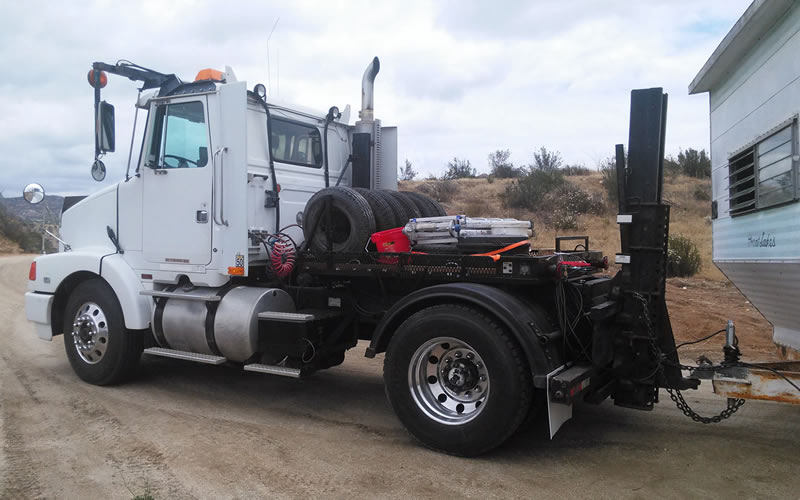
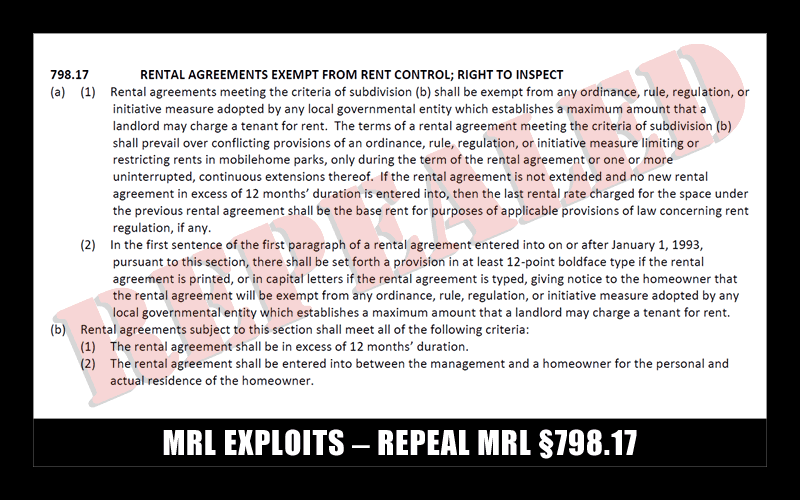
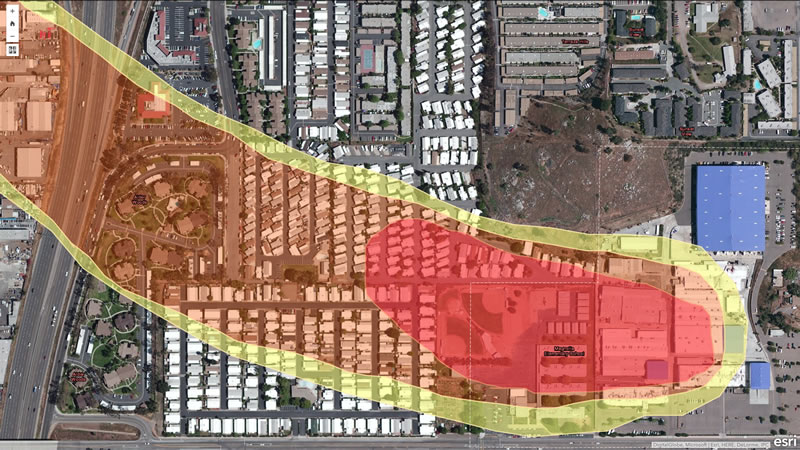
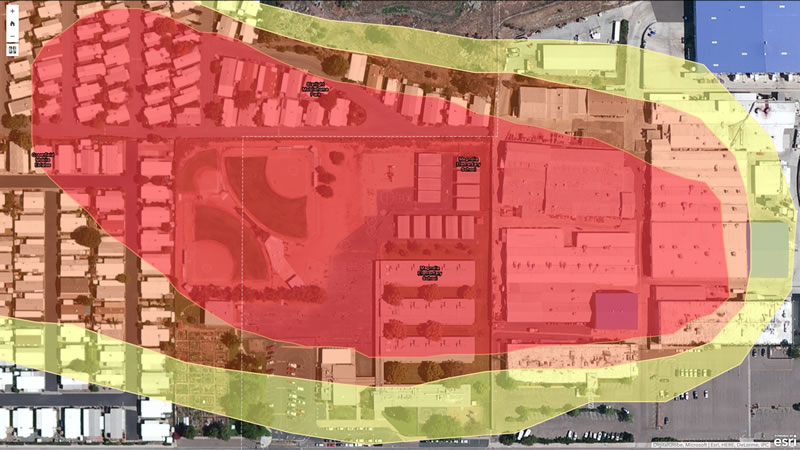
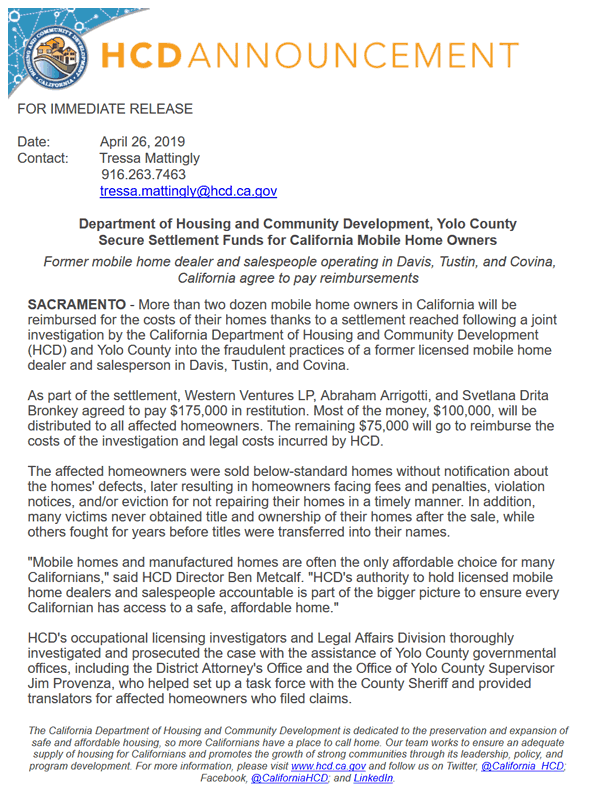 HCD Announcement – 2019-04-26
HCD Announcement – 2019-04-26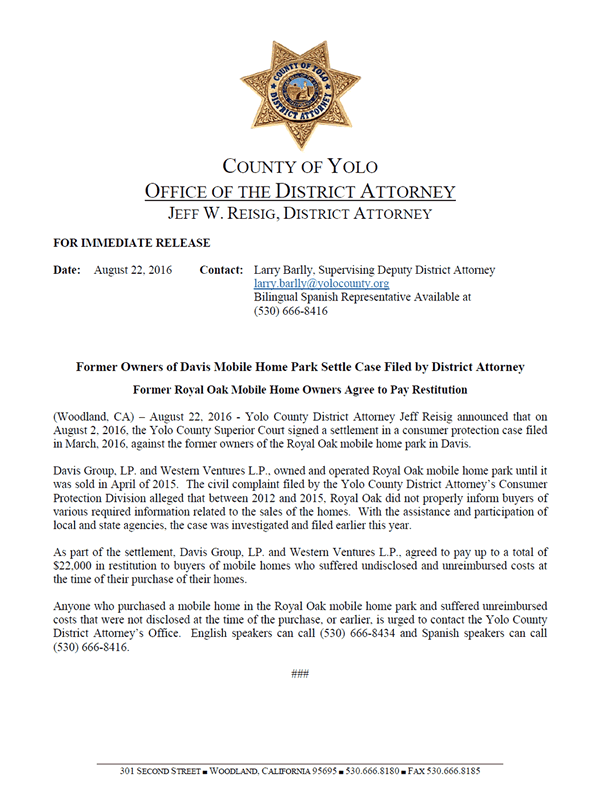 County of Yolo Press Release – 2016-08-22
County of Yolo Press Release – 2016-08-22